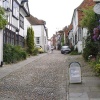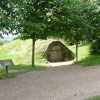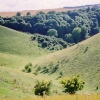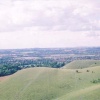Please login or click here to join.
Forgot Password? Click Here to reset pasword
 |  |  |  |  |  |
| Edward Lever Posts: 734 Joined: 22nd Dec 2005 Location: UK | quotePosted at 08:37 on 4th June 2013 I agree that using a monopod or tripod will help, but it is not the whole story about getting sharp wildlife pictures. Birds and the like often flutter about quickly and the only way of getting a sharp result is to have accurate focus and a fast shutter speed. The latter requirement means having as 'fast' a lens as you can afford. Unfortunately, such lenses are prohibitively expensive for most amateurs, but all the dedicated wildlife photographers seem to use them eg Canon 300 mm f/2.8 L IS USM etc would be ideal, but might set you back £5000. The other way of getting a faster shutter speed is to increase the ISO setting on the camera. This is a matter of personal judgement depending on how much 'noise' you think is acceptable, and of course a better camera will generally be less 'noisey'. As much natural light as possible always helps, but wildlife does not always oblige by getting in the best lit spot! But the challenge for most of us, like me, who cannot afford professional gear, is to get the best out of what we have. That, for me, is all part of the fun. Edited by: Edward Lever at:4th June 2013 08:57 |
| Dave John Posts: 22335 Joined: 27th Feb 2011 Location: England | quotePosted at 22:45 on 4th June 2013 Spot on again Edward. the only thing I would add is that the vast majority of 'new' cameras (last couple of years or so) have such amazing noise control that ISO 800 is barely distinguishable from ISO 100 to the naked eye on an average screen or A4 print. Used to use a 300-2.8 Canon many years ago and gotta say it was a stunning lump of glass, but simply could not justify owning one.....then or now !!! |
| Rod Burkey Posts: 554 Joined: 2nd Sep 2008 Location: UK | quotePosted at 00:38 on 5th June 2013 Sounds like a wonderful lens. By contrast, a lens I love to use in my outdoor work is a more modest lens price-wise., a Sigma 10-20mm. It allows me to really get into the picture and the perspective, a tad off reality. Sometimes,I take only one lens out and the discipline has made me work harder, be it through a wide angle, a long telephoto or a 50mm prime. I did this yesterday, using the 10-20 and returned to the same location today with my 18-105mm and the two sets of images are very different despite the almost identical light. |
| Dave John Posts: 22335 Joined: 27th Feb 2011 Location: England | quotePosted at 07:36 on 5th June 2013 That is a very good strategy Rod. One lens and make do, even better if it is a prime lens, that way you really have to think more, you have to move.....no zooming. But gotta agree with you on the Sigma 10-20, I've got the cheaper of the 2 with variable aperture, but is an absolutely stunning piece of kit. Got mine about 18 months ago not long after you showed me a couple of images taken with yours.....they swayed me.. Next purchase is likely to be a 50....such a versatile lens and quite affordabl at around £90 or so |
| Edward Lever Posts: 734 Joined: 22nd Dec 2005 Location: UK | quotePosted at 08:29 on 5th June 2013 I agree with Rod's strategy for general 'walk-around' photography. Using one lens, a zoom of modest zoom ratio, encourages creativity and you can travel light. The 10 - 22 mm is certainly very wide angle at the 10 mm setting and would come into its own in cityscapes and certain types of landscape. I also agree with Dave, if you go out with just a prime lens, this really does make you work hard. I mentioned the 300mm f/2.8 telephoto lens specifically for wildlife photography (also for sports photography) where you can't get close to the subject and there is the need for a large aperture to decouple the subject from the background. Owning such a lens is the stuff of fantasy for most of us (including me)! |
| Rod Burkey Posts: 554 Joined: 2nd Sep 2008 Location: UK | quotePosted at 18:47 on 5th June 2013 The 50mm prime lens is very strong on keeping backgrounds out of focus. Thanks for the comments Dave and Edward. |
| Edward Lever Posts: 734 Joined: 22nd Dec 2005 Location: UK | quotePosted at 20:17 on 5th June 2013 Yes Rod, the 50mm primes from all the main makers are fast lenses and are very good value since this focal length has been the 'standard' from film days. The wide apertures of these lenses are indeed useful for getting that out-of-focus background. However, on a crop sensor camera, the angle of view of the 50mm lens corresponds to more like that of an 80mm on a full frame camera. This in my opinion is good for portraiture but is probably too narrow for most landscape work. I am now using an old Canon 5D camera (full frame sensor) and I find that the 50mm prime is now much more useful for landscapes than it was on my crop sensor camera. |
| Rod Burkey Posts: 554 Joined: 2nd Sep 2008 Location: UK | quotePosted at 00:13 on 6th June 2013 Yes, 50mm is a bit narrow for landscapes / urban photography and maybe a 35mm would suit the subject better. I have yet to shell out on a full frame sensor camera, and may wait quite a while yet i'm afraid. One of my failings with outdoor photography is a dislike of setting up a tripod. Stupid I know, but it just seems to cramp my style. |
| Edward Lever Posts: 734 Joined: 22nd Dec 2005 Location: UK | quotePosted at 01:30 on 6th June 2013 Rod, you might be able to go full-frame for less than you think, if you are prepared to buy second-hand. Digital cameras depreciate faster than cars, and what was the bee's-knees 5 or 6 years ago is now a fraction of the original price. For example, the Canon 5D was originally around £3000 in 1997. Now, a good example can be bought for around £450. The full frame cameras are very robust, and are usually good for over 100,000 shutter operations. The only thing you don't get on the older camera is movie capability and 'live view', but I am not a fan of either of those features, so second-hand doesn't bother me. I also dislike lugging a tripod around. I feel somewhat self-conscious, maybe because I do not want to look like a camera geek |
| Rod Burkey Posts: 554 Joined: 2nd Sep 2008 Location: UK | quotePosted at 02:46 on 6th June 2013 You have set my brain into a different gear now! |